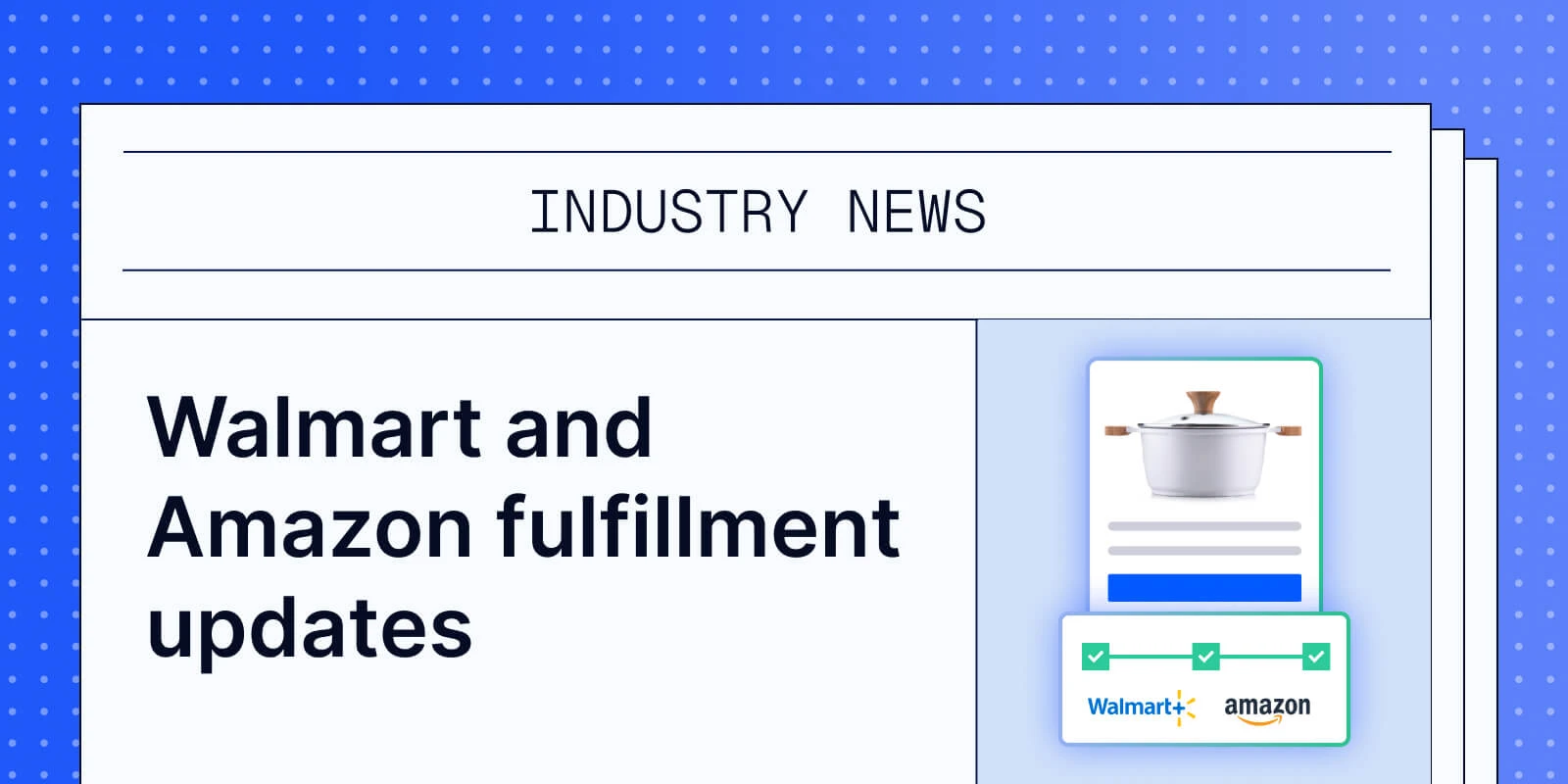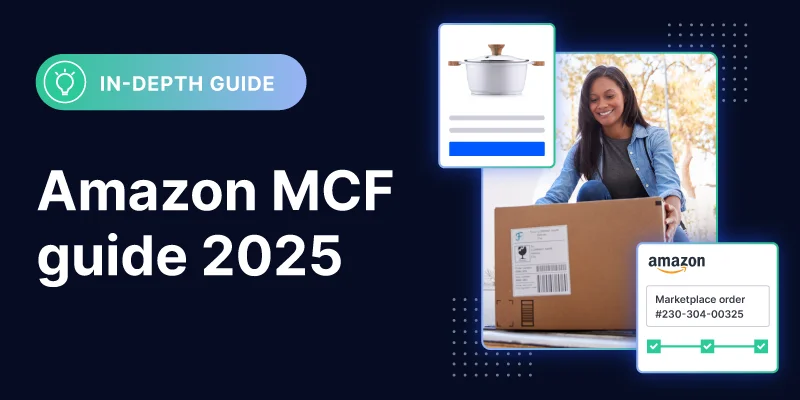In a major policy shift, Walmart has updated its official guidelines to allow sellers to fulfill Walmart Marketplace orders using Amazon Multi-Channel Fulfillment (MCF), as long as certain conditions are met. This long-awaited update marks a turning point in the evolving relationship between two of the biggest players in ecommerce logistics.
In response, Amazon is waiving “the 5% surcharge for use of alternative carriers.” The intent is to make it easier to fulfill Walmart orders with MCF, and the fee waiver will be in effect through January 14, 2026.
Why this update matters
Historically, Walmart sellers risked suspension for using Amazon to fulfill orders, even when they used unbranded packaging and third-party carriers. The primary issue? Tracking information that revealed Amazon’s involvement.
Now, Walmart has clarified its stance, officially permitting MCF under the following conditions:
- Neutral packaging only: No Amazon logos or branding.
- No Amazon Logistics: Use only unbranded carriers like USPS, FedEx, or UPS.
- Strict adherence to Walmart’s fulfillment standards: Orders must be timely, traceable, and free from competitor marketing.
A win for multichannel sellers
For merchants managing multiple sales channels, this change opens the door to more efficient logistics. Amazon MCF offers high on-time delivery rates, fast shipping options, and robust infrastructure that many brands already rely on. With the new policy, sellers can now centralize more of their inventory and extend the benefits of MCF to Walmart without fear of penalties.
However, sellers should stay vigilant: Walmart still prohibits retail arbitrage and drop shipping from other retailers, and using branded boxes or promotional inserts from competitors remains off-limits.
Key takeaways for sellers
- Yes, you can use Amazon MCF on Walmart—but only if you follow the rules.
- Double-check your packaging and carriers. Choose the “Plain Packaging” option and block Amazon Logistics at the time of order creation.
- Automate your operations. Tools like Feedonomics help streamline order routing, track inventory across channels, and avoid costly fulfillment errors.
What comes next?
According to EcommerceBytes, this policy change could intensify competition for Amazon warehouse space, especially during peak season. Sellers using MCF should monitor storage fees, explore upstream solutions like Amazon Warehousing & Distribution (AWD), and compare costs with alternatives.
Still, this is a clear win for operational flexibility and a sign that the ecommerce giants are acknowledging what sellers have long known: efficient multichannel fulfillment is essential to staying competitive.
Feedonomics can help you centralize inventory, sync orders, and automate product data across Walmart, Amazon, and hundreds of other channels.
Streamline multichannel selling with Feedonomics

Muhammed is a content marketing specialist creating informative content to help ecommerce professionals solve industry challenges and stay ahead of the curve.



